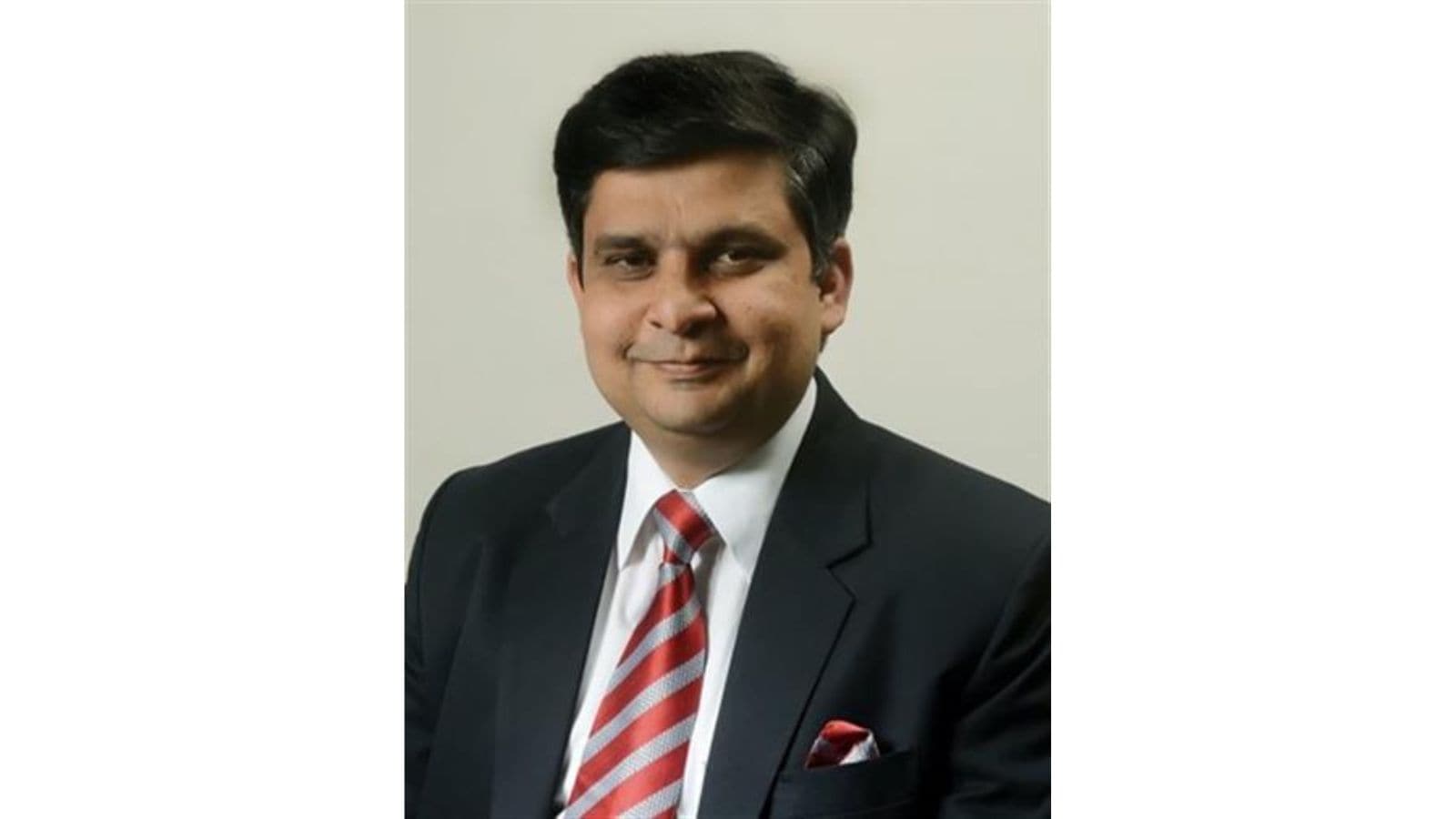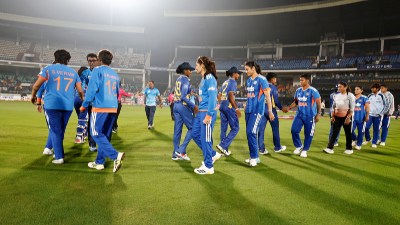Born to work in PGI: A Rheumatology professor at PGI, Prof Aman Sharma’s life revolves around the institute unless he is taking time out to watch cricket
Dr. Sharma shares his journey of close to 23 years at the Institute and how, despite the challenges, it has been a gratifying experience all the way
 Professor Aman Sharma
Professor Aman SharmaProf. Aman Sharma, Professor of Clinical Immunology and Rheumatology at the Department of Internal Medicine, PGI, has a special interest in rare rheumatic diseases such as systemic vasculitides and relapsing polychondritis. He founded the Indian Vasculitis Registry and the Indian Relapsing Polychondritis Registry. As the President-Elect of the Indian Rheumatology Association and Program Director of the Center of Excellence in HIV Care at PGI, Dr. Sharma has published more than 530 research papers and has been instrumental in starting the DM program in Clinical Immunology and Rheumatology at PGI. Dr. Sharma shares his journey of close to 23 years at the Institute and how, despite the challenges, it has been a gratifying experience all the way.
How did your journey at PGI begin?
I was born at PGI, where my father worked. Witnessing his dedication to the institute greatly influenced me. This, along with the impact of legendary PGI faculty at that time, shaped my career. Medicine was a natural choice. My medical journey started at the Government Medical College, Amritsar. I completed my senior residency at PGI and have been part of the Institute for more than 23 years. It has been a gratifying journey, despite many challenges. I had the privilege to work and learn from esteemed doctors like Prof. Pradeep Bambery, Prof. Subhash Verma, Prof. Amod Gupta, and many more. They significantly influenced my career. Work culture and ethics, not just infrastructure, make institutes like PGI and AIIMS. Despite the high patient volume, PGI offers the best medical facilities, with the latest diagnostics and therapeutics. Unlike abroad, where the waiting time for consultation can be weeks to months, here we attend to hundreds of patients daily in the OPDs, providing prompt care with priority testing for patients.
Please share your work in the field.
The Rheumatology Clinic at PGI manages patients with over 100 rheumatological diseases, primarily affecting individuals aged 20 to 60. We see around 70,000 patients annually in our department clinics. Rheumatology has seen significant advancements in the last three to four decades, with treatment options increasing exponentially. We have newer diagnostic techniques, imaging modalities including musculoskeletal ultrasound, CT/MRI, and PET CT, and various treatment options including conventional synthetic disease-modifying drugs, biologicals, and small molecules. PGI offers all these options for patient management. Pioneering studies have been conducted on the role of PET CT in various rheumatological diseases in collaboration with the Department of Nuclear Medicine. Collaborative work with various other departments is a great institutional strength. Along with a group of Indian researchers, we have developed Indian Rheumatology Association guidelines for the management of Antineutrophil Cytoplasmic Antibody (ANCA)-associated vasculitis, a heterogeneous group of rare autoimmune conditions that cause inflammation of blood vessels with various manifestations. ANCA-associated vasculitis is a group of life-threatening diseases affecting organs like the lungs and kidneys simultaneously. This involvement occurs rapidly, and if treatment is not initiated in time, it can lead to irreversible damage or death. The treatment involves the use of drugs that suppress inflammation. Until now, guidelines for managing these diseases were developed by Western countries, and there was a lack of Indian guidelines. Our guidelines are tailored to include treatment modalities available in India, considering cost factors best suited to the Indian context.
What would you consider your most gratifying achievement?
While publishing research papers and receiving national and international awards and orations is professionally satisfying, the most humbling experience is when a patient returns smiling and healthy after treatment; there can be no greater gratification than this. I have been fortunate to receive various fellowships, awards, and orations from international and national professional academic bodies, including FAMS, FRCP(London), FACR, FIACM, IRA oration, Rabindranath Tagore oration, R Subramanium oration, Zydus (IRA Young Investigator) oration, and CMC Vellore Eminent Mid-Career Rheumatologist oration. However, an invitation to deliver the NIAMS/NIH grand rounds on systemic vasculitis and relapsing polychondritis, and the inaugural lecture of the third International DADA2 Conference, are particularly close to my heart.
You were invited as an expert reviewer for the American College of Rheumatology/EULAR world research group on developing the classification and diagnostic criteria of vasculitides. Please share your insights.
Vasculitides are a group of rare diseases causing inflammation and injury to blood vessels. The inflammation can affect the lining or wall of an artery or vein, leading to thickening, weakening, narrowing, or scarring. Any vessel, from the largest to the smallest, may be involved. Damaged blood vessels can lead to decreased blood flow, resulting in partial or complete organ failure due to lack of blood supply.
Rupture of weakened vessel walls can cause hemorrhage. Almost any organ system may be involved, as blood vessels supply every organ in the body, making it a systemic disease. Patients with vasculitis often experience fevers, weight loss, fatigue, rapid pulse, diffuse aches and pains, joint pains, and joint swelling. Disease severity ranges from mild to life-threatening. PGI Chandigarh has been at the forefront of diagnosing these disorders, and we advise that anyone experiencing such symptoms should consult a rheumatologist immediately.
What is your advice as a rheumatologist?
Inflammatory joint diseases affect not only adults but also children. Early warning signs of arthritis include joint pain, joint swelling, early morning stiffness of joints or lower back, skin rash, and photosensitivity. Other rheumatological diseases may cause nasal crusting, bleeding, cough, blood in sputum, and renal failure. If any of these symptoms develop simultaneously, one must consult a rheumatologist.
What are the lifestyle changes that you suggest?
A good diet and a healthy lifestyle are very important. Regular, preferably supervised exercises, yoga, swimming etc are good. These should be done wherever feasible as per the disease status, and as per the doctor’s advice. Low -carb, high -protein diet, with an adequate proportion of fruits and green vegetables are helpful. Smoking must be stopped. This not only can trigger but also worsen the existing arthritis:
What are the challenges?
Ever-increasing patient numbers are the biggest challenge. The need of the hour is to have both speciality and super-speciality care for all patients in the surrounding states, so that patients receive care near to their homes, and hospitals like ours are not overburdened.
When you are not working, how do you unwind?
We are a family of doctors, my wife is a gynaecologist, my sister is a Professor in Microbiology here at PGI, and my two daughters are studying medicine, so life revolves around medicine. I used to love writing poetry and painting, but don’t find space for it now. I love watching sports especially cricket as and when the time permits. Research, writing papers, patient care, and developing systems to enhance care in the department, and my work is the centre of my life and at the end of the day, it gives us immense satisfaction.







